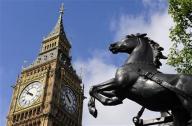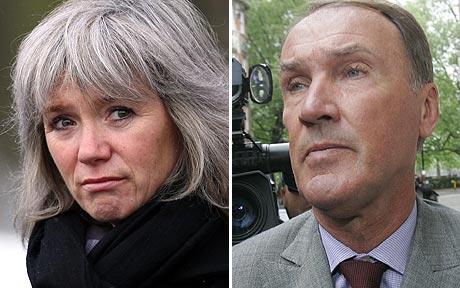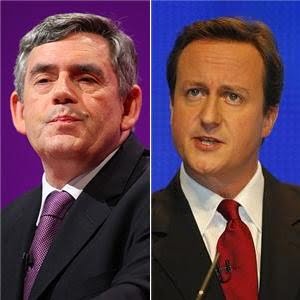As the MPs expenses row rumbles on and on, we have recieved this letter showing just how angry many in the movement are about this. Many people raised this as an issue when voting (or, in most cases, not voting) in the local and Euro elections last week. The likes of Harriet Harman have been spouting off about this and saying that action will be taken. Fat chance! MPs like their perks rather too much.Of course we understand that this scandal has acted like the proverbial last straw for many traditional Labour voters, following on from twelve years of New Labour sell-outs, which have seen millions of voters deserting Labour and, in the main, sitting at home on election days. We believe the standard for labour MPs should be simple – A workers’ MP on a workers’ wage. More than this, to restore voters trust in Labour we need to see a fundamental change towards socialist policies and a fighting socialist leadership to push them forward. This would keep the Tories from getting back in at the next election – as well as ensuring that the likes of the BNP and other vermin never get near an elected position again.
The nature of the MPs expenses scandal – A Letter
Everyday this scandal gets bigger. Every day we are overwhelmed by a
new set of allegations or more precisely a new list of facts which
scream for themselves in outlining the massively lucrative side bar
which expense claims have given our politicians.
MPs have
a standard salary of £64,766 per year. Over and above this, MPs are
paid generously for many of the media appearances they make and the
various and varied contributions made to newspapers and magazines.
Their personal investment history; the stocks and shares they have
toyed with over the years constitute yet another veiled means by which
they receive more.
But perhaps most importantly many
MPs have second jobs.A recent paper by the deputy leader of the
commons found that 66% of the Tories, 37% of the Liberal Democrats and
19% of Labour MPs hold other posts. However in the majority of these
cases the second jobs in question don’t seem to involve any actual
work. Often an MP is made a director on a board of a large company; not
an active director in any heading to the office and running the
business type way, but moreover a director who has the status of a
sleeping partner; whose title holds sufficient sway to tie the company
to the cradle of political power in Westminster. Including an MP on
the board has obvious benefits from the point of view of any business;
it provides prospective clients and investors with the sense that the
company in question has both economic and political clout.
 The sheer numbers of MPs who are now figureheads for such commercial
The sheer numbers of MPs who are now figureheads for such commercial
enterprises give a powerful indication that something is rancid more
generally. These high numbers show that the interpenetration between
government officials and large business interests is neither arbitrary
nor something which occurs infrequently on the periphery of political
and economic life. Instead business concerns and political
decision-making have become largely fused creating a symbiosis of self
interest and ambition. Such a situation quite inevitably produces a
culture in which political success and financial privilege are regarded
as one in the same. The corruption of the MPs and the desperate,
despicable scrabble for every last perk emerges directly from this.
In other words the greed of the politicians isn’t simply reducible to a
lack of character on the part of certain individuals. It is part of the
broader process, a process which has been augmented by the current
economic crisis. And the more it seems as though they were stood on
the precipice of this crisis, the more the politicians have sought to
salvage all they can. Their claims have ranged from the petty (a
kit-kat at a hotel bar) to the grandiose and absurd (the cleaning of a
moat).Many seem to claim with a fevered desperation which verges on
despair. In a certain way this is entirely comprehensible. The more
the political activity of politicians is welded to the interest of a
tiny minority occupying the higher echelons of the business world, the
less they are able to receive impetus from the activity of the general
population. And there is nothing more creative than the latter. The
majority of people in any society are those who produce and reproduce
the conditions by which everyone lives.They are
therefore a force of sustained and perpetual creativity. A living
breathing creativity.As the politicians are further distanced from
this realm, they can only look toward their houses and decorations and
bank balances. For there is no where else to look.
Margaret
Beckett (who had claimed among other things £600 worth in potted
plants) appeared on the programme ‘Question Time’just after the
scandal broke.As she beheld the irate audience, her whole expression
seemed to ossify in a bitter rictus grin. She stared at the people she
supposedly represents and when she finally deigned to speak her tone
was lofty and sardonic. She was not the slightest bit apologetic for
the £3250 she had claimed on food nor for the £72,000 she had claimed
on a second residence even though she was renting out another flat in
the capital over the same period.In fact everything about her aspect
suggested righteousness and disdain. "You don’t understand" she
sneered at the people who had provided her with all the luxuries of
wealth.
 But despite her brazen show of belligerence it could
But despite her brazen show of belligerence it could
be observed that Beckett’s composure was a tenuous one. An expression
riveted with contempt but also with unease. She clearly recognised
that the spontaneous and genuine outpour of anger on the part of the
audience and the population more generally was a danger to her position
and those like her.Frightened, contemptuous and angry – "You don’t
understand" this politician told the population. But what she really
meant was that "you can’t understand."Beckett was fearful, yes, but
also irritated that what she had come to see as little more than a
rabble now had the audacity to make such scathing judgements about
political careers. How could the ordinary person on the street
possibly understand the subtlety and nuance politicians bring to bear?
How, therefore, could they appreciate the level of financial benefit
which goes with such difficult, delicate work? And how dare they pass
judgement on such things!
Beckett’s behaviour is
interesting because it is far from unique. She exemplifies both the
fear and contempt with which MPs, in their isolation, regard the
general population. This fear and contempt thoroughly permeates their
responses to the political crisis.They imagine that mass anger can
be satiated with the most flimsy of concessions precisely because they
have a faithless and cynical vision of the majority. Though the public
outrage disturbs and frightens them, they regard it as nothing more
than a knee-jerk reaction fermented by an over excitable press. The
thoughtless and emotive clamouring will grow quiet over time for people
have short memories. What is necessary is to give a few concessions
here and there and meanwhile wait out the storm. With this in mind
some MPs have paid back some of the most excessive expense
claims.But, as might be expected this has done little good.There
are few people willing to take such gestures seriously. Many are calling for more far reaching consequences.More than once it has been
pointed out that if someone were to rob a bank and then get caught in
the act, a generous offer made to pay back the money would probably not
move the arresting officers much and nor would it save the criminal
from jail.
Similarly the solutions the politicians offer up
in order to make sure that these "abberations" don’t reoccur are vague
and unsubstantial.There are the endless and empty calls for
committees. Committees to do this.Committees to do that.We are
told nothing about such committees other than they are to be
"independent." Independent of what we do not know. It is conceivable
that a particular committee might be made physically independent of the
politicians in that no politician would sit on it. But this would mean
very little if the politicians themselves were to select the
‘independents.’
And more fundamentally a committee to
regulate parliamentary spending, though it might conceivably curb some
of the worst excesses for the time being, would be nothing more than a
survivalist response allowing MPs to preserve the fundementals of the
system. It would not attack the process by which private enterprise
has linked so explicitly with political activity in parliament. It
would not create a fundamental connection between the politicians and
the majority of people they are said to represent.In short it would
not change the objective factors which created the political crisis in
the first place.
 The politicians introduce laws which
The politicians introduce laws which
regulate the conditions of life for a vast majority while at the same
time they live and operate in a realm which stands in opposition to
those conditions. This fact becomes ever more decisive as finance
capital increasingly imposes itself on the higher strata of the
political layer.This process can only be reversed by something
equally fundamental.A sustained and conscientious accountability on
the part of the politicians can only be realised if the political
activity of the politicians depends not on a minority but is entrenched
in the life processes of the masses as a whole. In other words if the
minister of housing were to live in a relatively ordinary house. If
the minster of transport were to have just the one car and sometimes
use the tube. And so on and so forth. Such organic accountability
would not only delimit the current excess but create a profound
improvement in the overall standard of housing and transport in general.
But where could anyone find a politician who is willing to exit the
realm of politics as it now exists. A politician prepared to abandon
privilege. It seems as though you would be hard pressed to find
someone like that in the corridors of power in Westminster. Where
might you find political actors whose interests are at the same time
those of the majority? The answer is, of course, in the majority
themselves. It is only when the majority of people who live in the
houses actually plan the way those houses are built and developed, that
a genuinely democratic and powerful drive to significantly raise the
conditions of living for everyone might materialise. It is only when
the people who use the general means of transport begin to actively
plan and organise them, that we will experience an end to the under
funding, the breaking down and the general all round chaos that is
every commuters’ experience in the now.
The requirement for a communistic organizing of society is much more
than any idealism. It is a necessity which grows from Capitalism in
general but also a necessity which emerges in and through the details
of the world in which we live including this present political crisis.
In the reaction to the programme of ‘Question Time’ featuring Margaret
Beckett there have been thousands of comments posted on the web and in
papers. From the few I have read it seems that a tiny minority actually
support the MPs while most register profound contempt for their
behaviour.But more importantly there is the growing conviction that
politics must somehow become the property of the majority, if the
situation to change for the better.
On
the comments page of the BBC website Andrew Beard from Nottingham asks
"Isn’t it time we had the guy from Macdonald’s running the country
while the politicians flip the burgers?"
Ben from Oldham says that the politicians should be made to "stay in a travellodge and eat MacDonald’s."
Ana Gilmurray from Liverpool is more expansive when she says – "(I)…
am seething at the MPs who have milked the expenses system to the tune
of tens of thousands of pounds. If I did that I would lose my job –
the same should happen to them. Send them back to the constituencies
and let US the people who paid for their unfettered greed make the
decision about their future."
It is unlikely that all the
people who leave these and other such comments would identify
themselves as being Marxists. But such statements are revolutionary in
character because they hint at the need for the majority to enter the
political realm as protagonists. And this is profoundly important.
Less and less do you encounter that wide-spread sense of apathy and
hopelessness whereby people acknowledge the disgusting doings of
politicians but feel that such behaviour belongs to an unalterable and
unknowable realm.
A realm which exists over and above normal life. It
seems that the people who are most desperate to cling to this latter
belief are the politicians themselves. And through their isolation and
corruption, aren’t apathy and hopelessness what they should be allowed to
claim?







